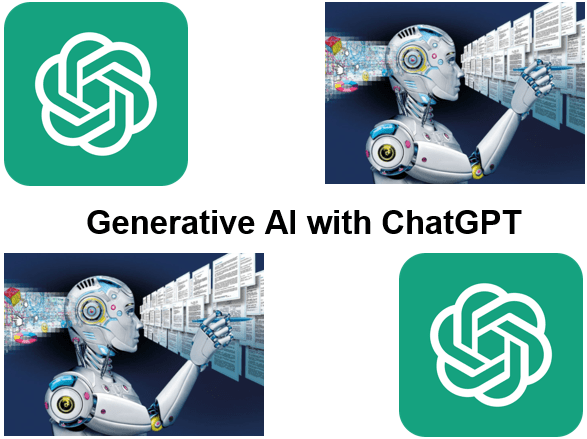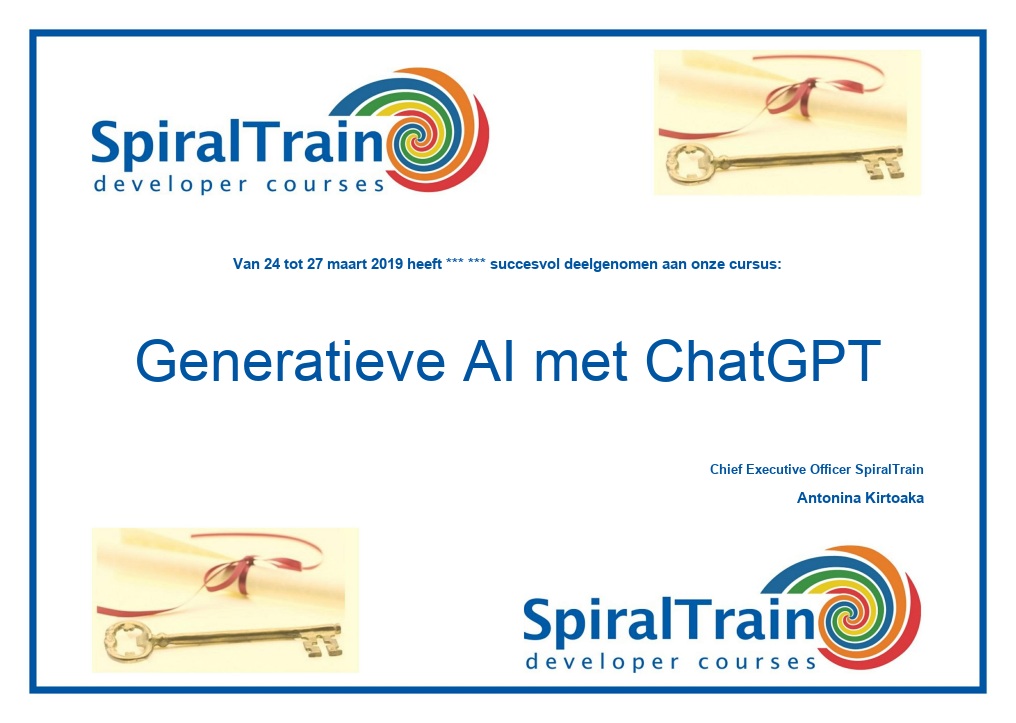- Leren door doen
- Trainers met praktijkervaring
- Klassikale trainingen
- Gedetailleerd cursusmateriaal
- Duidelijke inhoudsbeschrijving
- Maatwerk inhoud mogelijk
- Trainingen die doorgaan
- Kleine groepen
Applied generative AI using ChatGPT in real-world business, coding, and creative contexts.
Cursusoverzicht
Deze praktische cursus van 2 dagen biedt een diepgaand begrip van GitLab CI/CD, een krachtige tool voor het automatiseren van softwarebuilds, -tests en -implementaties. Deelnemers leren hoe ze CI/CD-pipelines in GitLab kunnen instellen, configureren en optimaliseren om de efficiëntie van softwarelevering te verbeteren.
Aan het einde van de cursus kunnen deelnemers:
• GitLab CI/CD-architectuur en -concepten begrijpen
• CI/CD-pipelines maken met .gitlab-ci.yml
• Continue integratie en leveringsbest practices implementeren
• Builds, testen en implementaties automatiseren
• GitLab CI/CD integreren met Docker, Kubernetes en cloudplatforms
• Beveiligings- en nalevingscontroles implementeren in pipelines
De cursus GitLab CI/CD is bestemd voor DevOps-engineers, Software Developers en QA engineers die pipelining met GitLab willen leren.
Voor deelname aan cursus is basiskennis Git, versiebeheer en software workflows vereist. Bekendheid met containers is nuttig.
Theorie en praktijk worden in de cursus met elkaar afgewisseld. Uitleg aan de hand van case studies uit de praktijk.
De deelnemers krijgen na het goed doorlopen van de cursus een certificaat van deelname aan GitLab CI/CD.

|
Module 1: Introduction to Generative AI and ChatGPT • What is Generative AI? • History and evolution of ChatGPT • ChatGPT versus traditional AI models • GPT architecture (Transformer basics) • Overview of ChatGPT use cases • Prompt engineering basics • Language capabilities and limitations • Understanding model fine-tuning • Tokenization and context windows • Responsible AI and usage guidelines Module 2: Practical Prompt Engineering • What makes a good prompt? • Prompt patterns and templates • Role prompting and chain-of-thought • Controlling tone and style • Using system messages effectively • Iterative refinement of prompts • Prompting for structured output • Dynamic prompt generation • Avoiding hallucinations • Safety and bias considerations Module 3: Business Applications of ChatGPT • Automating customer service • ChatGPT in HR and recruitment • Business reports and analysis • Knowledge management • Brainstorming and idea generation • Process automation • Product descriptions and marketing • Content summarization • Legal and compliance support • Integrating into business workflows Module 4: ChatGPT for Developers • API basics and authentication • Building a simple ChatGPT app • Integrating with third-party tools • Function calling and tool usage • Data pipelines and ChatGPT • Handling responses programmatically • Webhooks and automation • ChatGPT with Python/JavaScript • Use in testing and documentation • Debugging AI interactions Module 5: Creativity and Content Creation • Writing blogs and articles • Script writing and storytelling • Personal branding with AI • Image generation with DALL·E • Creating lesson plans and tutorials • Generating poems and music • Roleplay and simulations • Educational games with ChatGPT • Memes and social media content • Ethics in creative AI work Module 6: Custom GPTs and Advanced Features • Creating Custom GPTs • Uploading files and memory features • Using advanced tools (Python, browser, code interpreter) • Persona development • Embedding context and documents • Plugins and extensions • Voice and multimodal input • Real-time collaboration with ChatGPT • Building AI agents • Future roadmap of GPT |
